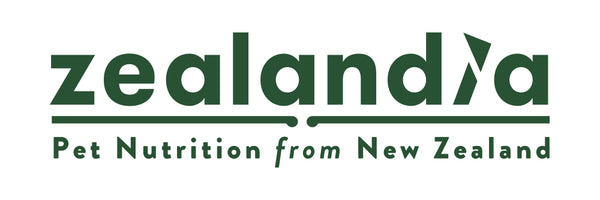Frequently Asked Questions
Why is Zealandia an ethical choice as pet food?
We use raw materials that are a by-product of the human-food chain. No animal is killed especially for pet food. New Zealand is bound by the Animal Welfare Act 1999 which states animals are sentient and must be treated appropriately throughout their lifespan.
For the wild land animals (Brushtail, Goat, Wallaby), these are part of a conservation preservation order to remove them from their non-native habitat, to protect native New Zealand birds. We work with professional government registered hunters, who are also bound by the Animal Welfare Act 1999. These are our most ethical proteins as if we did not use them for petfood, they would otherwise be disposed of. By feeding Brushtail especially, you can be comfortable knowing that some native New Zealand birds have been preserved.
Are your products GMO, Hormone Growth Promotant and Antibiotic free?
Nutrition is essential for healthy animals. Most sheep and beef production in New Zealand relies almost entirely on rainwater and grass pasture feeding. Farmers do not feed grains or other crops used in livestock production globally. Therefore, there is less need for artificial medications, as the animals grow naturally in an environment that they strive in, happily in wide-open spaces, under bright sunshine and crisp rains.
To date, no fresh produce (fruit, vegetables, meat or milk) originating in New Zealand has been genetically modified. New Zealand’s laws and regulations governing genetic modification are amongst the most rigorous in the world.
The use of growth hormones has been banned by the New Zealand Poultry industry for more than 30 years. Poultry meat is routinely tested by the Ministry for Primary Industries (MPI) for the presence of growth-promoting hormones. None has ever been found in fresh poultry products grown and processed by PIANZ members. New Zealand Beef & Sheep farmers also do not use hormone growth promotants (HGPs) to enhance production or yields.
Animals are only treated with antibiotics when necessary for the health and wellbeing of the animal. All antibiotic use is reported, and treated animals are withheld from market for specified periods. New Zealand is among the lowest global users of antibiotics in cattle and sheep production – due to extensive outdoor farming that reduces the chance of infections spreading and strict regulations that only permit antibiotic use for animal health reasons (under veterinary control).
How are the Zealandia recipes formulated?
Zealandia canned food recipes are consistent, with a base of lamb organs. This is so if you desire to mix and match proteins, your pet will be accustomed to the taste. The main protein inclusion is set at about 60% on a dry-matter basis, with lamb organs (Liver/Lung/Green Tripe/Heart/Kidney/Plasma) around 32%. Green-Lipped Mussels are added at 3%. The remaining 5% includes Salmon Oil for Skin & Coat, Dried Yeast, Binding Agents, and a Vitamin & Mineral Mix. A total of 95% meat is a high-meat inclusion diet, which is what we recommend feeding to cats & dogs on a daily basis.
How should I transition my pet over to Zealandia?
We always recommend to transition to Zealandia over a 7 day period. Gradually add more product to your existing feeding to enable your pet to get accustomed to the new taste of Zealandia.
What are the Zealandia regulatory standards?
Our recipes are designed to adhere to New Zealand’s Ministry of Primary Industries (MPI), AAFCO in the United States, FEDIAF in Europe, and MARA in China. The combination of the regulatory standards from these organisations, covers the regulation standards from all the other countries that we export to.
What binding ingredients do you use?
For canned food, a certain amount of binding agents are required to provide an acceptable finish to the product. Without these agents the product can turn into a sludge-like consistency. We use Agar (sometimes referred to as Agar Agar), and Guar Gum. Agar comes from seaweed and is often used as a vegetarian alternative to gelatin. Guar Gum made from guar beans, is gluten-free and has strong viscosity. We consistently run trials looking at how to reduce our binding agents. Currently these two agents produce the best results for the product and remain in safe quantities for your pets to consume daily.
Do I need to add any extra supplements to Zealandia?
Our canned foods are complete and balanced and provide all the nutrition needed for your pet when feeding on a daily basis.
Are the canned food recipes the same for cats and dogs?
Our canned food has the same ingredients, however the vitamin & mineral mix is slightly different for cats & dogs. To satisfy AAFCO regulations, Selenium Yeast is included for dogs, and Sodium Selenite for cats. We recommend to always feed dog food to dogs, and cat food to cats.
How much should I feed my pet?
Please refer to the individual labels that include a feeding guide. This guide will show you what amounts to feed each day by weight and life-stage.
What is dried yeast, and why is it added?
On an 'as-fed basis' we add 1.89% ‘inactive’ nutritional yeast to our formulas (labelled for US/AAFCO compliance as: dried yeast). It supplies a broad spectrum of B vitamins with antioxidants, and helps to promote a strong immune system. It also helps to enhance the palatability with an umami taste profile.
My cat is allergic to chicken. Is there any chance of cross contamination between your chicken variant and your non-chicken variants?
We only include Chicken in our Chicken Pate recipe. There is no chance of cross contamination between this recipe and our other recipes, as per NZ government regulations, all equipment must be thoroughly washed down between batches.
What is the carbohydrate content for a diabetic cat?
The carbohydrate level (as fed) is shown on each product listing. For the dried-matter-basis (DMB), multiple by (100%total/78%moisture). i.e. 1.28. Chicken Pate (as fed) 0.90% therefore becomes 1.15% (DMB). Note: There are no carbohydrates included in the main Zealandia canned food recipe. The small percentage comes from the Dried Yeast that we add.
How long can I keep Zealandia canned food in the fridge? Can I heat up the food after taking out of the fridge?
We recommend covering the can and keeping refrigerated after opening, then use within 3 days. It is not necessary to heat up the food after being refrigerated as most animals will eat cold food, however if so desired, the food can be warmed in the microwave for 10-15 seconds. Ensure that the food is not so hot that it would burn your pet’s mouth. Warming the food will not change the quality of the food.
What levels of Taurine are in your canned cat foods?
We have a minimum of 200mg/100g of Taurine in our canned food products, on a dry matter basis. If you are looking to feed a higher Taurine amount, we recommend our Duck, and Goat products. These both have 321mg/100g of Taurine included on a dry matter basis.
What is the Calcium made from?
The Calcium Carbonate is processed from selected limestone, finely ground into a powder for various purposes e.g. nutritional supplements, food production. No burning or chemical treatment is involved in the processing of the product. The Calcium Pantothenate and Calcium Iodate are Calcium Salts.

